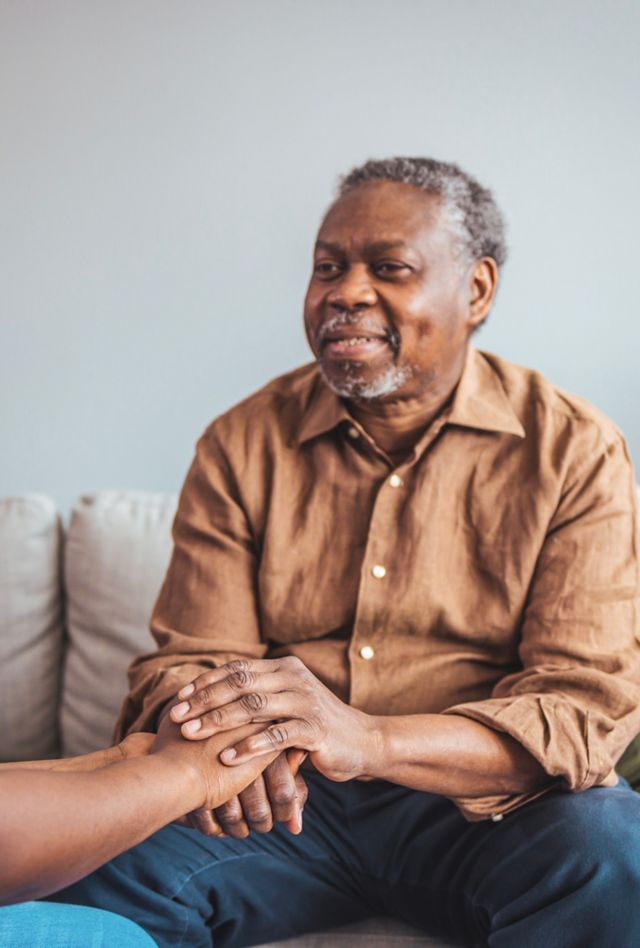The Dignity & Respect Study

Problem
Black Americans underutilize hospice and palliative care.
Palliative and hospice services have shown tangible evidence of enhancing the quality of life, decreasing the likelihood of depression, and extending survival. Data from the National Hospice and Palliative Care Organization (NHPCO) estimated that 76 percent of all hospice patients were White and only 7.6 percent were Black (NHPCO, 2015).
Black people receive referrals later and are less likely to use palliative and hospice care. Late referrals are associated with poorer outcomes, including a greater likelihood of being bed-bound at admission or unresponsive at admission, and therefore unable to participate actively in hospice support. Moreover, the lack of referrals negates the benefits of palliative and hospice care, as the patients endure pain and invasive treatments and cannot have educated, meaningful discussions about the goals of their care.
Solution
NORC conducted focus groups with Black Chicagoans to understand their awareness and experience of hospice and palliative care.
Funded by the Bridge at NORC and in partnership with the Hospice and Palliative Care (HAP) Foundation and Arreola Consulting, a collaborative research team conducted a comprehensive qualitative research initiative. This study delved into the intricate experiences of Black Chicagoans when it comes to receiving serious illness care.
A multifaceted approach was used, incorporating focus group discussions and in-depth interviews. These sessions involved informal caregivers—such as family members and friends—and formal caregivers, including a death doula. The primary objective was to gain insights into the participants’ knowledge levels, attitudes, and beliefs concerning hospice and palliative care. The study aimed to shed light on the unique challenges, perceptions, and needs of the Black community in Chicago regarding end-of-life care and support.
Result
Communication gaps hindered timely access to palliative and hospice care for Black Chicagoans, promoting intrusive treatments.
The study's insights suggest a multifaceted solution to enhance end-of-life care for Black Chicagoans. Alongside community education initiatives that foster a more informed and receptive attitude toward hospice and palliative care, addressing providers’ intrusive treatments involves implementing cultural competence training. By promoting informed decision-making, respect for cultural beliefs, and collaborative approaches, this comprehensive solution aims to bridge the gap between healthcare providers and the Black community, ensuring more personalized and culturally competent end-of-life care practices.
Related Tags
Project Leads
-
Jocelyn Wilder
Senior Research ScientistPrincipal Investigator -
Stefan Vogler
Research ScientistProject Director








